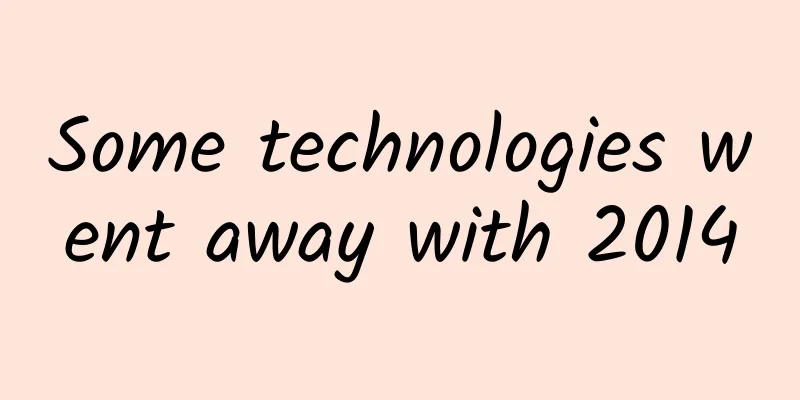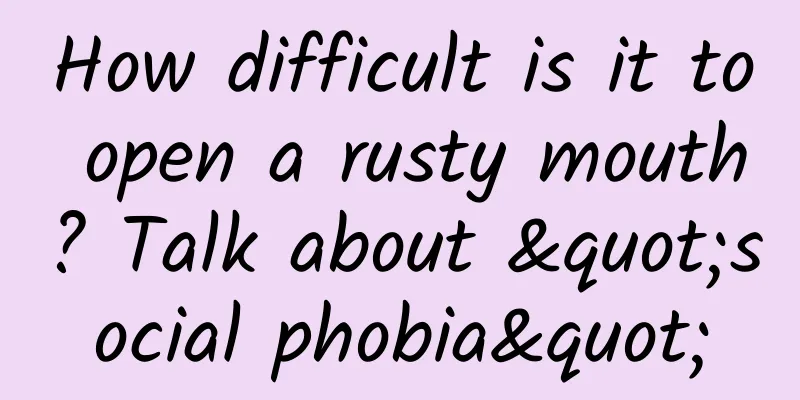Some technologies went away with 2014

|
MarketWatch columnist Jurica Dujmovic wrote an article reviewing the products, concepts and services that officially disappeared in 2014 or will definitely disappear in the future due to technological progress. The following is the full text of Dujmovic's commentary: From the perspective of modern science and technology, the past twelve months have been a wonderful year. In the fields of medicine, agriculture, robotics and privacy, we have made considerable progress, and these progresses themselves have laid the foundation for further progress in the future. Not to mention, in 2014, many high-tech devices were unveiled to the world.
1. Windows XP Microsoft (MSFT) has finally come to the point of killing off Windows XP. Why did they do this? Here’s how the company explained it: "We have continued to support Windows XP for the past 12 years, longer than any other operating system and two years beyond our normal support schedule. Now is the time to move forward and create even better products and services for you and all of our customers." So, you can't wait until the next upgrade. 2. The Pirate Bay I bet you could have guessed I was going to mention The Pirate Bay. If you don't know what I'm talking about, let me remind you again: Remember that big index of all kinds of pirated content? No, not demonoid, isohunt, kickasstorrents, or any of the hundreds of other similar sites that are still up and running, but... The Pirate Bay. On December 9th, their entire operation was shut down after a raid by Swedish police, who seized computers and servers, bringing an end to one of the world's largest providers of pirated content. 3. Standalone GPS device GPS is already a "standard feature" in most cars and almost all smartphones, and it is becoming increasingly unprofitable to produce and sell stand-alone GPS products. It is true that the battery of a mobile phone will drain quickly when GPS is turned on, but power banks can easily solve this problem, and there are solar-powered power banks. With the development of battery technology, this may not be a problem one day. Soon we will see that apart from truly professional explorers or extreme sports enthusiasts, there will be no other users of stand-alone GPS devices. 4. CD Here, I'm talking about all the various optical discs on the market. A bunch of plastic discs take up a lot of space, and you don't have to use them. Whether it's Blu-ray or DVD, it no longer makes sense. We now have amazing bandwidth and super small flash USB 3.0 devices. Why do we still need optical discs? I think the optical discs in your hands will soon become coasters or mini Frisbees. 5. SMS Now that we can send free text messages using carrier-independent web apps, it's obviously a waste to spend a penny on SMS. The SMS business did have its glory days of exponential growth, but its fate is sealed in the current market environment, not to mention the increasing number of free wifi hotspots around the world. 6. MSN Messenger This thing should be in a museum. I don't mean to be sarcastic, but I think the introduction to this exhibit in a museum should be: "The closure of MSN Messenger heralds the arrival of a new era of multimedia messaging applications (such as Skype, which replaced it)." Only those convenient, immersive applications that can solve screen sharing and initiate audio and video conversations can truly meet the needs of modern communication. Although it's not 2015, sooner or later, they will completely replace our ordinary phone calls. 7. Traditional TV Specifically, I'm talking about cable TV. Although I've discussed this before in other columns, it's worth mentioning here given its importance - the gradual death of traditional television, which means that the way we receive information and entertainment and respond to it is gradually changing. Today, viewers are increasingly impatient with commercials and are increasingly reluctant to spend time scanning channels to find their favorite programs. More and more services, from Google's (GOOG) YouTube to Netflix (NFLX), have proven that people still prefer to watch what they want, when they want. They want an online experience without any interruptions. Those traditional TV organizations have only two choices - transform into interactive online multimedia services or slowly die. In the next year, we will quietly watch how they choose. Link to this article: http://www.oschina.net/news/58521/tech-died-in-2014 |
<<: CES 2015 mobile phone product preview: many flagships will be released
>>: 10 tech products that became popular before they were released in 2015
Recommend
If Alibaba is not short of money, why does it still issue bonds?
After raising $25 billion in IPO financing, Aliba...
How can I make my WeChat mini program rank higher in search engines?
After Jump Jump became popular, more people paid ...
Review of the Sanlian screen-sweeping case: 6 reasons for the success of the "Sanlian Red" screen-sweeping
On the first day of work on the seventh day of th...
Google Play opens developer team in China
[[132708]] Chris Yerga, vice president of enginee...
CCTV looks at the barrage. What kind of transaction did CCTV and Bilibili make today?
Bilibili, commonly known as Station B, is China&#...
Why do you keep getting hotter when you pick your feet? Do you want to smell it after you pick your feet?
A few days ago, the news that a certain celebrity...
SpaceX's first manned commercial space flight! Flying around the earth for 3 days, the ticket price may reach 200 million yuan
Is space travel for all people really going to be...
How to create hot marketing activities and specific implementation plans!
In the early morning of July 27, I saw several on...
Short video promotion tips for Huoshan, Kuaishou, Douyin, etc.!
Traffic is the focus of everyone's attention ...
How to trigger the growth of private domain users?
As traffic costs continue to rise and the market ...
China Association of Automobile Manufacturers: A brief overview of the operation of the automobile industry in May 2021
According to statistics and analysis by the China...
Why does "couple cancer" occur? The "killer" behind it is ignored by many people
Today, the topic is "A couple both got cance...
Design and attribute matching skills of advertising promotion materials!
After we have determined the marketing promotion ...
How to acquire a large number of accurate users at low cost?
In 2017, the operation method of increasing fans ...
5 methods to teach you how to effectively improve retention rate, TikTok and PUBG are using them!
This article will discuss in detail how to system...









